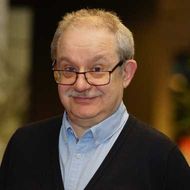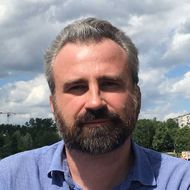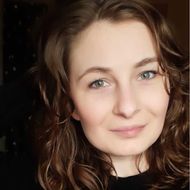- A
- A
- A
- ABC
- ABC
- ABC
- А
- А
- А
- А
- А
- HSE University
- Faculties
- Faculty of Social Sciences
- School of Sociology
- News
- Coffee, R, and Big Data: Summer Programme in Methods of Social Research in Ann Arbor
Address: 101000, Moscow,
11 Myasnitskaya Ulitsa.
Phone: 8 (495) 772-95-90 *12349
Email: izangieva@hse.ru
The School of Sociology aims to train future social analysts in sociological reasoning to address the needs of social life, business, politics, public administration, and the media. To this end, the school works to develop a close link between education and research, as well as application-oriented education, internationalization of research and education, and close networks with major employers on the labour market.
In press
Abashkin V., Abdrakhmanova G., Vishnevskiy K. et al.
M.: HSE, 2025.
Nastina E., Andiappan M., Miles A. et al.
Journal of Social Psychology. 2025. P. 1-14.
Aristova N., Chadeev V., Iakimova O.
In bk.: 2024 17th International Conference on Management of Large-Scale System Development (MLSD). IEEE, 2024. P. 1-4.
OSF, 2024
Address: 101000, Moscow,
11 Myasnitskaya Ulitsa.
Phone: 8 (495) 772-95-90 *12349
Email: izangieva@hse.ru

Coffee, R, and Big Data: Summer Programme in Methods of Social Research in Ann Arbor
The Inter-university Consortium for Political and Social Research (ICPSR) Summer Programme in Quantitative Methods of Social Research is in all likelihood the most prestigious summer school in the social sciences. Every year, the University of Michigan welcomes thousands of young researchers who are looking to develop their research skills under the supervision of world renowned professionals. Maxim Rudnev, Leading Research Fellow at the Laboratory for Comparative Studies in Mass Consciousness, shared his experience of the programme.
This summer, thanks to support provided by the Faculty of Social Sciences Centre of Continuing Education, I managed to study in the ICPSR Summer Programme, which has been held annually for over 70 years at the University of Michigan in the city of Ann Arbor (USA).
This was my second time participating in this programme. It offers very concentrated courses, and material that is usually covered over one or two semesters is studied in a month here. The study load is so high that you hardly have time for lunch. There are a lot of course offerings, and the participants can attend any of them, starting and stopping whenever they feel the need.
At first, I attended three courses, but then understood that that was too much, and chose the two most important for me: Advanced Bayesian Statistics and Causal Inference.
The most interesting and useful part for me were the first two weeks of Bayesian Statistics, which were taught by Jeffrey Harden from the University of Colorado at Boulder. We studied the Bayesian principles and sampling procedures in the search of posteriori distributions and, among other things, we studied step-by-step the EM algorithm and various types of Markov chain Monte Carlo algorithms, including the Gibbs sampler and the Metropolis Hastings algorithm. Theoretical foundations were taught together with application in various R packages and by the example of specific data analysis. The second part of the course, which was taught by Daniel Stegmueller, was dedicated to the Bayesian approach to well-known methods of data analysis, such as various regressions, factor analysis, and mixed distribution analysis.
The Casual Inference course began with a journey into the history of experimental design. Ben Hansen, in his special relaxed style, involved the students in communication and showed the logic that explains the classical example of Ronald Fisher’s experiment with a lady who claimed to be able to tell whether it was the coffee or the milk that was added first to a cup. Instead, Ben suggested that we try the coffee he prepared himself and the one that was offered at the Summer Programme’s office for free. After a number of tests, we calculated how close the subject was to the truth, and made a decision regarding the subject’s ability to detect the type of coffee. That was fun and helped us look at the meaning of P-values from a new perspective. Later, the course went deeper into variations of randomness in experiments and the methods of their correction by means of, among other things, propensity scores matching.
In addition to the core courses, the Summer Programme offers a number of Blalock Lectures, which are short courses ranging from one to five topical lectures. Mathew Danny’s course was dedicated to big data analysis and described some general problems. For example, he demonstrated that various algorithms have different efficiency and showed, among other things, that C++ programming language is much more effective for big data analysis than the widely used R. He also showed how to use it directly from the R environment. Such overview courses offer very practical and useful information that makes life easier for researchers and analysts. Other such practical courses included ‘Introduction to the R Statistical Computing Environment’ and ‘Introduction to the LaTeX Text Processing System’, as well as a training session on publication in academic journals with editors of leading political science journals.
This school provides a lot of material, which I’ll have to spend several months digesting. Importantly, it arms you not only with theoretical knowledge, but with the tools to carry out your own research.
Maxim Rudnev, Leading Research Fellow at the Laboratory for Comparative Studies in Mass Consciousness
- About
- About
- Key Figures & Facts
- Sustainability at HSE University
- Faculties & Departments
- International Partnerships
- Faculty & Staff
- HSE Buildings
- Public Enquiries
- Studies
- Admissions
- Programme Catalogue
- Undergraduate
- Graduate
- Exchange Programmes
- Summer Schools
- Semester in Moscow
- Business Internship
-
https://elearning.hse.ru/en/mooc/
Massive Open Online Courses
-
https://www.hse.ru/en/visual/
HSE Site for the Visually Impaired
-
http://5top100.com/
Russian Academic Excellence Project 5-100
- © HSE University 1993–2025 Contacts Copyright Privacy Policy Site Map
- Edit



